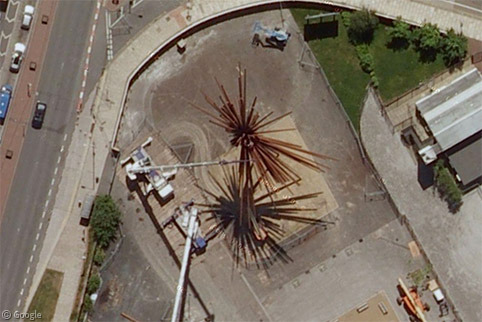Manchester looks to China for economic revival in the North
Sir Howard Bernstein, chief executive of Manchester City Council, says the high cost of investing in London is bringing more business to the North
By Andrew Critchlow, Business News Editor
8:00PM BST 07 Jun 2014
Sir Howard Bernstein, the man responsible for reviving the economic fortunes of Manchester, says he has met with more foreign investors this year than at any other time since he took over as the chief executive of the city’s council.
The high cost of doing business in London and accessing business opportunities in the capital has, according to Sir Howard, brought more businesses to the self-appointed capital of the North over the last year.
Hit hard during the financial crisis and by AstraZeneca relocating its research headquarters from Alderley Park to Cambridge, a decision Sir Howard describes as a “blow”, Manchester has pegged its strategy on attracting more capital from overseas.
“Most international investors over decades within the context of the UK have only seen London as a home for investment,” Sir Howard told The Sunday Telegraph. “I think that is changing for two reasons. One is they are now being crowded out of London because not everyone can gain access to the investment proposition there at a price they want to pay so there is an incentive for international investors to look outside London, probably for the first time in many years.”
“Secondly, what is putting Manchester on the radar screen, is that here is a place that has got its act together. We’re probably one of the few cities in the UK outside London which is now regularly attracting international investors.”
Manchester has so far beaten local rival Liverpool to the punch in terms of attracting significant foreign investment. Liverpool, which has twinned itself with Shanghai, has aggressively pitched to Chinese investors and is proposing to build the country’s highest skyscraper outside London, named “Shanghai Tower”.
The multi-million pound investment by Abu Dhabi into developing the area of East Manchester around Manchester City Stadium and the participation of Beijing Construction Engineering Group (BCEG) in the £800m development of the Airport City Manchester project are two examples of recent major successes that Sir Howard hopes will help to bring in more investors.
“Abu Dhabi investing around the football club as well as Chinese investors in the airport is demonstrating to the international community that Manchester is a place investors like sovereign wealth funds see as a logical place to deploy capital,” said Sir Howard.
BCEG, which is backed by the Industrial and Commercial Bank of China, is one of the first major Chinese developers to invest outside the capital, where demand for commercial real estate has remained strong despite a slowdown in the rest of the country. A delegation from Airport City will this week begin a roadshow tour of China to drum up more investment.
Meeting with potential investors in Beijing, Shanghai and Shenzhen, the delegation will also present a new service to ease the process of Chinese businesses establishing a foothold in the UK. This will include a “concierge” service designed to help potential investors secure visas and register a company in addition to advice on accommodation for employees and the best local schools.
As commercial and residential real estate prices in London have surged, David Cameron has come under increasing pressure to do more to promote economic growth in the regions, especially the North. Manchester — like many northern cities built up during Britain’s industrial revolution — has struggled historically to reposition its local economy in the shadow of London’s success.
“The Government gets the requirement to rebalance the economy but I’m not always sure this overarching policy requirement is fairly and accurately reflected in all its mainstream growth and reform policies. I think it’s an issue that doesn’t just apply to this government; it applies to successive governments over the last 20 years,” said Sir Howard.
“Sometimes we don’t realise that the needs and priorities of a place like Manchester are not the same needs and priorities as a place like London. The issue around housing, for example, in a place like Manchester is not the same as in London. Our requirement is to reclaim brownfield sites and service them for development and bring more family housing on stream. The priority in London is about how you secure more affordable or social housing for key workers.”
Although initiatives such as the relocation of some BBC staff to Manchester’s Media City development and the creation of local growth funds have helped, according to Sir Howard much more needs to be done to rebalance Britain’s economy between the prosperous South East and the North.
“We need a more responsive set of policies for growth and reform that fill the needs and circumstances of different parts of the country. A 'one size fits all’ approach to urban development doesn’t work.”
The city paid a heavy price for successive governments’ failure to address the long-term decline of British manufacturing. Between 1970 and 1985, Manchester’s eastern factory area lost 60pc of its economic and employment base. However, the redevelopment of the city centre following the 1996 terrorist bomb attack and the recent focus on attracting foreign investment helped it to endure the financial crisis.
“Its fair to say we weathered the storm better than most, largely because of the way our economic base had widened and diversified over the past several years,” said Sir Howard. “Whereas traditional demand for occupation of commercial floor space reduced we were still seeing significant interest in science and technology-based activities and that for us was always a big plus for the city.
“What we have seen since the turn of the year is increasing levels of confidence amongst business, amongst commercial occupiers. There is still a long way to go. Whether this increases levels of liquidity and confidence in the market, only time will tell. But there are certainly lots of signs of new investment and confidence which is starting to filter through.”
Manchester also lies at the centre of one of the potentially richest regions in the UK for shale gas development. The process of extracting gas through a process of horizontal drilling and hydraulic fracturing of shale rocks has been controversial due to environmental concerns but its potential to revitalise former industrial heartlands such as Manchester with cheap energy is compelling, especially when compared with the experience in the US.
Although he is in favour of fracking, Sir Howard believes people should be cautious about the potential benefits to the economy. “I think we’re all dipping our toe in the water on that one. Obviously, the opportunities will be greater in different parts of the North West and we have to look responsibly at how we can exploit these opportunities when they become available,” he said.
“We shouldn’t be increasing expectations that this is a panacea for transforming the economic fortunes of the entire North West.”





